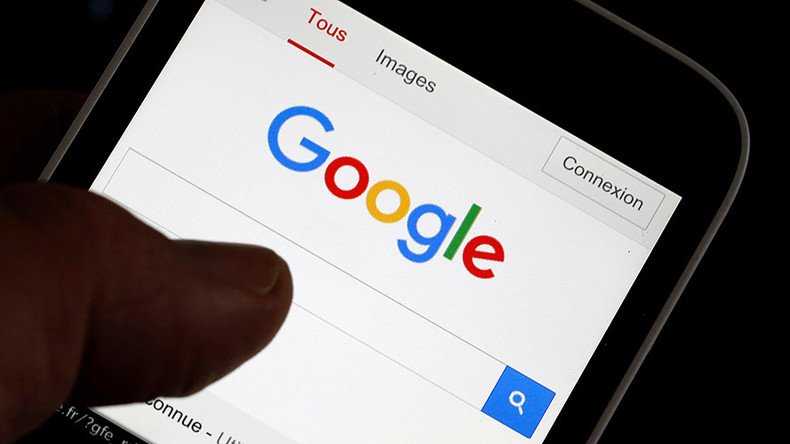US Senator accuses RT of hacking Google, RT suggests he should learn how search engines work

Russian media has tampered with Google algorithms, tuning them to promote stories published by RT and other Russian media, a top-ranking US official said. RT's editor in chief instead suggests he should learn how search engines work before making such accusations.
“We saw manipulation of certain algorithms, so that if you Googled certain items, you got Russia news, [RT] News, other false news. We saw the selective hacking into DNC and individuals that then tried to leak that information to benefit Mr. Trump,” Virginia Senator and top Democrat on the Senate Intelligence Committee Mark Warner told CBS’s “Face the Nation” on Sunday.
Warner’s claim quickly sparked a response from RT’s editor-in-chief.
“Somebody please tell the US Senator how internet search engines work. Or I'll haunt his dreams in the guise of a bear – this could give him a heart attack!” Margarita Simonyan said on Tuesday.
This is by far not the first time the Russian media in general and RT in particular has been accused of every digital sin, the allegations including hacking and using hi-tech means of spreading "propaganda" and "misinformation."
Most recently, French presidential candidate Emmanuel Macron’s team accused RT along with Russian Sputnik news agency of spreading “false information” in the run-up to the French presidential election. Macron's aide, however, failed to elaborate as to how exactly RT's reports were "false."
Earlier this year former US presidential candidate Hillary Clinton made similarly baseless anti-RT claims during her campaign, which was characterized by leaks of compromising information. Then again, a year ago the German intelligence service (BND) and the country’s counterintelligence agency (BfV) had launched an investigation into "Russian interference" in the country’s domestic affairs. Again, no proof was found. Yet all keep maintaining that one way or another Russia has been meddling with the processes in these countries either via hacking or through “excessive or false reporting” and “targeted disinformation.”
What's worse, RT also appears too high in web search results for Western officials' liking. In January, the Atlantic even published an analysis on whether RT should be treated the same way as other media, classifying it in “a category of often-misleading state-sponsored news sources.”
“RT stories regularly appear toward the top of Google search results. Earlier this month, when I Googled ‘ODNI hacking report’ on my smartphone, I was inundated with links to RT news stories and video clips from its TV broadcasts,” the article states.
It’s worth noting that Google’s algorithm utilizes a vast number of factors to rank its search results, including what the user has previously searched for, or what others are searching for in conjunction with a certain phrase.














